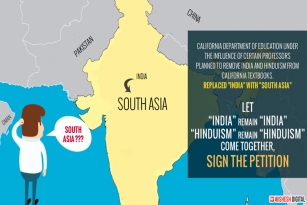
Congressman Tim Bishop introduced a bipartisan legislation to bar corporations that send U.S. call center jobs overseas from receiving federal grants and loans. This new US Bill tabled in the House of Representatives seeks to bar US call centers operating in locations such as India from seeking federal grants or loans for five years. The bill, if passed, will also penalize US call centers with a penalty of $10,000 per day, for failing to report a relocation to an offshore location, within 60 days to the US Department of Labor.
The full text of the bill is available here:
This proposed legislation would let the public know which companies are engaging in sending jobs out of the country, let customers ask to use an American call center instead, and ban federal grants or guaranteed loans to American companies that move call center jobs out of the US.
The legislation would require the U.S. Department of Labor to track firms that move call center jobs overseas; the firms would then be ineligible for any direct or indirect federal loans or loan guarantees for five years.
"It's common sense that we should not be rewarding companies that ship jobs overseas while millions of qualified Americans are looking for work," Bishop said. "Taxpayer dollars should only be used to incentivize good corporate citizens who create American jobs."
The The U.S. Call Center Worker and Consumer Protection Act gives consumers the right to ask where the person they are speaking with is based, and ask for an American-based representative instead. Among the things this bill would accomplish:
•Require the Department of Labor to publicly list firms that move call center jobs overseas.
•Make these firms ineligible for any direct or indirect federal loans or loan guarantees for five years.
•Require 120 day advance notification of a proposed move off-shore.
•Require call center employees to tell U.S. consumers where they are located, if asked.
•Require that call centers transfer calls to a U.S. call center if asked
The new law may impact the growth of the already sluggish $14-billion Indian BPO market, which is under pressure, due to a slowdown in US markets and competition from other locations.
Large US centres such as Convergys, Teleperformace and Sitel, which have presence in India, may be impacted with the decision. Even captive units of companies such as UnitedHealthcare Group, which operate in India, along with US headquartered call centres such as EXLService, would be impacted with this decision.
"Outsourcing is one of the reasons we are struggling to knock down the unemployment rate," Bishop said in the House. Bishop added that there are 47 lakh call centre employees in US today, down from 53 lakh in 2006.
The call-center bill has strong backing from the Communications Workers of America, a union representing 700,000 workers, more than 150,000 of whom are customer service reps. Ron Collins, CWA's chief of staff, said that Americans have been losing decent-paying call-center jobs so that large corporations can save on labor costs. He praised AT&T for its decision to bring 5,000 customer service jobs back to the U.S. as part of its merger with T-Mobile.
Already, some call centre operators in India, particularly those in rural areas, are trying hard to compete with overseas call centers — and some rural call centre operators say they are seeing a trend toward companies moving call centres back to the US.
Funny Video on Call center!














